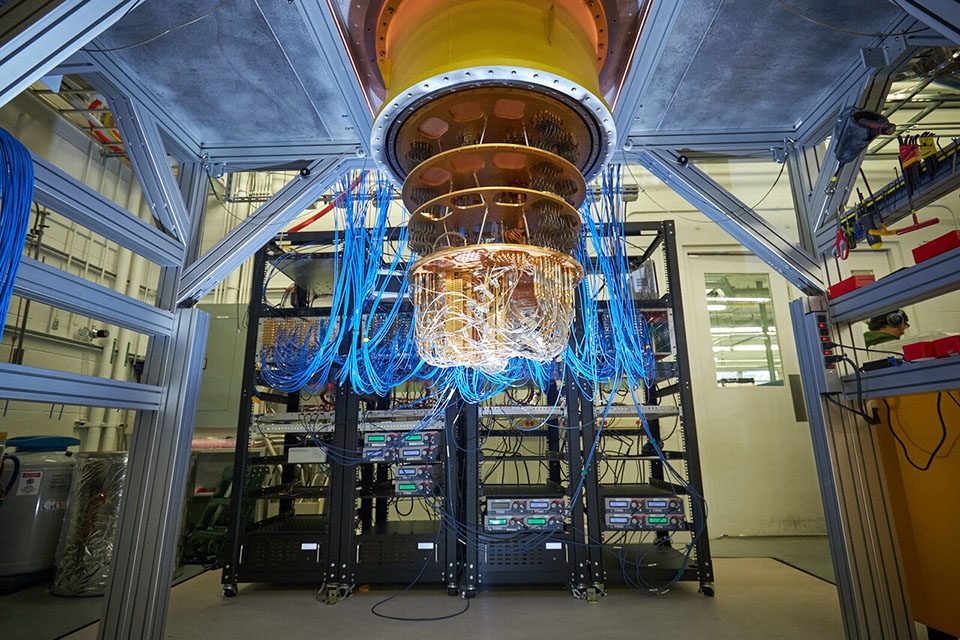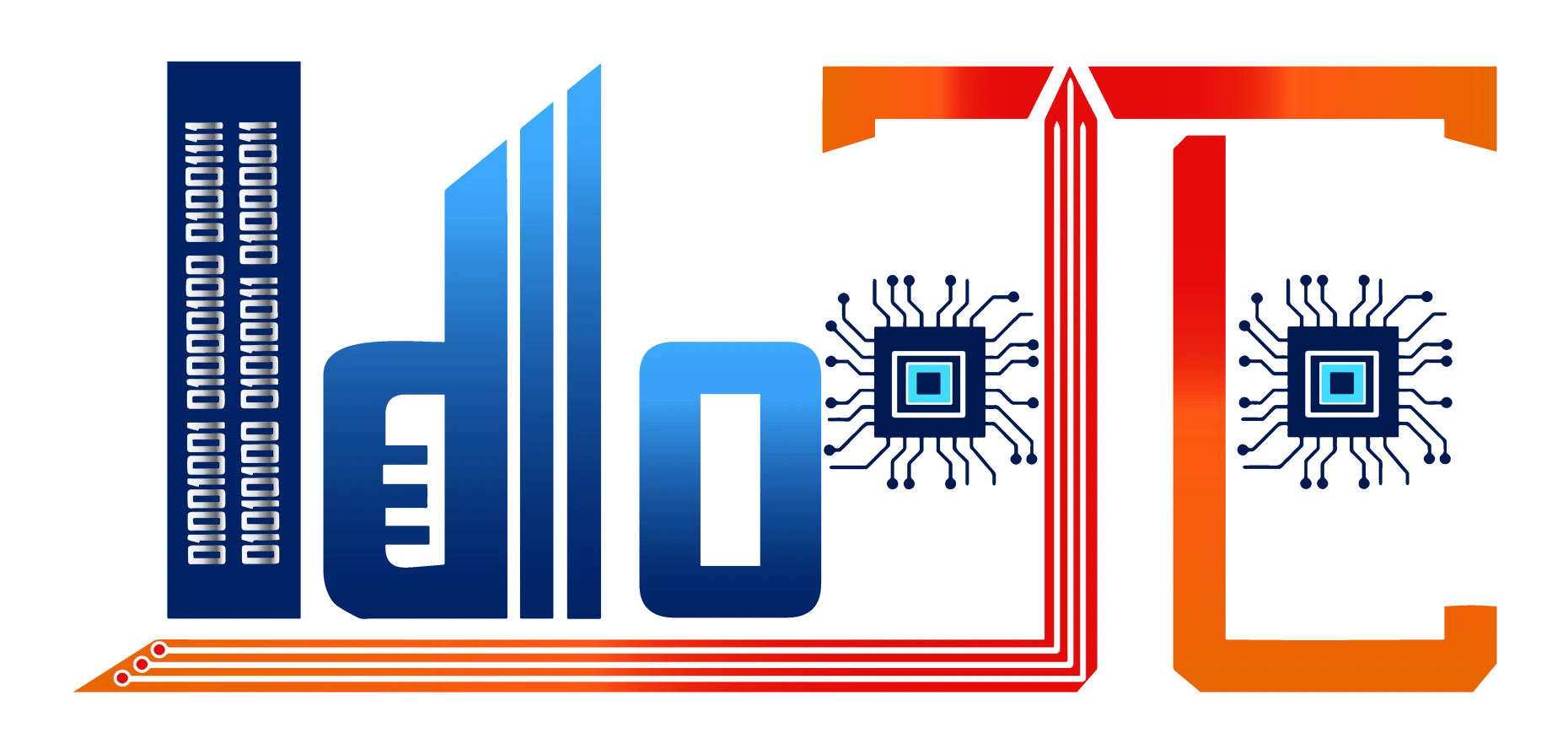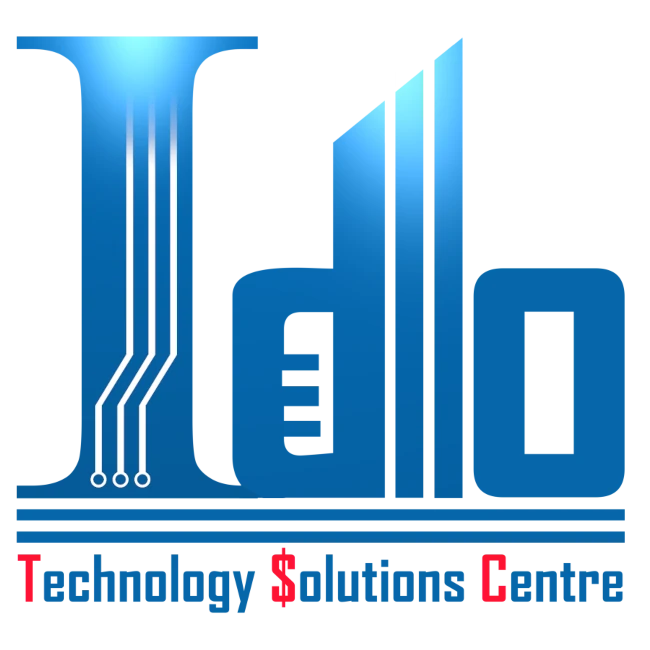How does a quantum computer work?

A quantum computer (also known as a quantum supercomputer) is a computing device that directly uses quantum mechanical effects such as superposition and entanglement to perform operations on input data. Quantum computers have hardware that is quite different from transistor-based digital computers. While digital computers require data to be encoded in binary digits (bits), each of which is assigned to one of two states (0 and 1), quantum computation uses qubits (quantum bits) that can be in a quantum superposition. One of the theoretical models of a quantum computer is the quantum Turing machine, also known as the universal quantum computer. Quantum computers have theoretical features in common with non-deterministic and probabilistic automaton computers, with the ability to be in multiple states simultaneously. The field of quantum computing was first proposed by Yuri Manin in 1980 and by Richard Feynman in 1982. Quantum computing, which uses spin to represent quantum bits, was also conceived when the concept of quantum spacetime was introduced in 1969.
As of 2014, quantum computing is still in its infancy, but there have been many experiments to perform quantum computations on a small number of qubits.[6] Both experimental and theoretical research is underway, and many countries’ governments and militaries have supported quantum computing research for both civilian and security purposes, such as cryptanalysis.
Large-scale quantum computers will be able to solve complex problems faster than any classical computer using the best algorithms available today, such as Shor’s algorithm for factoring natural numbers into prime numbers, or simulating many-body quantum systems. There are also quantum algorithms, such as Simon’s algorithm, that allow computers to perform faster than any classical probabilistic computer. However, given enough time and resources, a classical computer can perform any quantum algorithm. Quantum computing does not violate the Church–Turing Thesis.
Quantum and conventional computing are parallel worlds with some similarities and many differences, such as the use of qubits instead of bits. Let’s look at three of the biggest differences between quantum computers and conventional computers below.
Programming languages: Quantum computers do not have their own programming code because they require very specific algorithms. However, conventional computers have standardized languages such as Java, SQL, and Python…
Functionality: Quantum computers are not intended for widespread, everyday use, unlike personal computers (PCs). These supercomputers are so complex that they can only be used in fields such as science and technology.
Architecture: Quantum computers have a simpler architecture than conventional computers and they do not have any memory or processors. The device consists only of a set of qubits that help it run.
What are the operating conditions of a quantum computer?
Quantum computers are extremely sensitive and require very specific pressure, temperature, and insulation conditions to operate correctly. If there is interaction with outside particles, the computer can introduce measurement errors. That is why they are sealed and must be operated using conventional computers.
Quantum computers must have almost no atmospheric pressure, an ambient temperature close to absolute zero (-273°C), and be insulated from the Earth’s magnetic field to prevent atoms from moving, colliding with each other, or interacting with the environment. Additionally, these systems only operate for a very short period of time, so information is corrupted and cannot be stored, making data recovery difficult.
What are the uses of quantum computers?
Computer security, biomedicine, discovery of new materials… are all among the fields that can be revolutionized by advances in quantum technology. Here are some of the most significant benefits of using quantum computers:
Finance: Companies will further optimize their investment portfolios and improve simulation systems along with fraud detection.
Healthcare: This sector will benefit from the development of new drugs and genetic treatments as well as DNA research.
Cybersecurity: Quantum programming involves risks but it also has advances in data encryption such as the emergence of the new Quantum Key Distribution (QKD) system. This is a new technique for sending sensitive information via light signals and detecting intruders in the system.
Travel and transportation: Companies like Airbus are using quantum technology to design more efficient aircraft. Qubits will also enable significant advances in traffic planning and route optimization systems.

